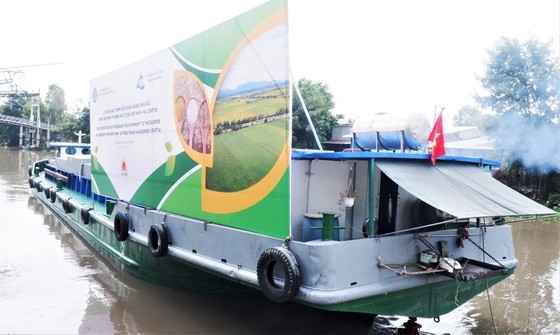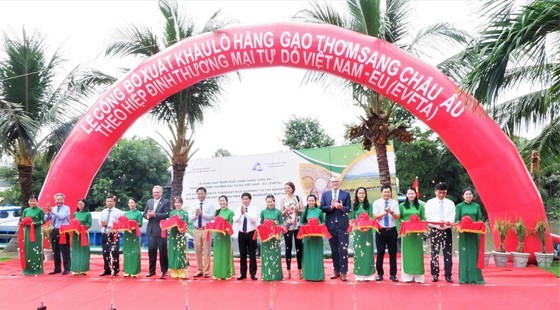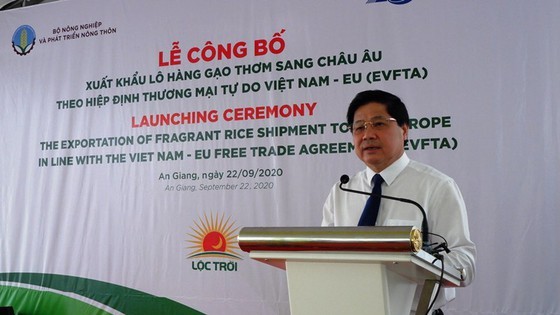
Accordingly, the first batch of Jasmine 85 fragrant rice exported to Europe of Loc Troi Group with the quantity of nearly 126 tons will be officially exported to the European market at the end of September this year.
The leader of Loc Troi Group said that with the preferential tax rates of the EVFTA, it would be a great competitive edge in exporting agricultural products in general and rice in particular to the EU. This is the competitive advantage of Loc Troi because, for many years, the group has invested in building standard rice-growing areas with quality control always being given top priority in raw material areas and production and processing facilities. The group aims to control the quality to meet the increasing demand of the EU, increase the rice-growing areas to increase export output, and diversify rice varieties with the desire to become one of the largest rice exporters in the future.
The leader of Loc Troi Group said that with the preferential tax rates of the EVFTA, it would be a great competitive edge in exporting agricultural products in general and rice in particular to the EU. This is the competitive advantage of Loc Troi because, for many years, the group has invested in building standard rice-growing areas with quality control always being given top priority in raw material areas and production and processing facilities. The group aims to control the quality to meet the increasing demand of the EU, increase the rice-growing areas to increase export output, and diversify rice varieties with the desire to become one of the largest rice exporters in the future.
 The announcement ceremony of the export of the first batch of fragrant rice to Europe under the EU- Vietnam Free Trade Agreement (EVFTA). (Photo: SGGP)
The announcement ceremony of the export of the first batch of fragrant rice to Europe under the EU- Vietnam Free Trade Agreement (EVFTA). (Photo: SGGP)
Deputy Minister of the MARD Le Quoc Doanh said that the export of fragrant rice to Europe shows that farmers and enterprises have had the production capability to meet the most stringent standards on food safety and hygiene and the high quality set by fastidious markets. The zero-percent export tariff has an important meaning of the official recognition of the quality and standards of Vietnamese rice. It is the premise for the restructuring of the rice industry, improving the quality of goods towards sustainable development. Shortly, to make use of the above advantage, the agricultural sector should promote the restructuring of production under the value chain model. It is necessary to strengthen the close link between cooperatives, farmers, and enterprises. Besides, it is essential to pay attention to packing and labels for better exploitation in the EU market.
 Deputy Minister of Agriculture and Rural Development Le Quoc Doanh, speaking at the ceremony. (Photo: SGGP)
Deputy Minister of Agriculture and Rural Development Le Quoc Doanh, speaking at the ceremony. (Photo: SGGP)
According to European experts, Vietnam is not only located in the vibrant market area of Asia but also a country with favorable conditions for commercial development. Moreover, Vietnam is also a country with a stable economic and political situation and has integrated more deeply into the global economy. Vietnam's agricultural industry has great potentials for export to Europe. Currently, many Vietnamese enterprises have proven their product quality, meeting the standards and tastes of European consumers.
Under the EVFTA, the EU allows a quota of 80,000 tons of rice per year for Vietnam, including 30,000 tons of fragrant rice, 30,000 tons of milled rice, and 20,000 tons of unmilled rice.
























